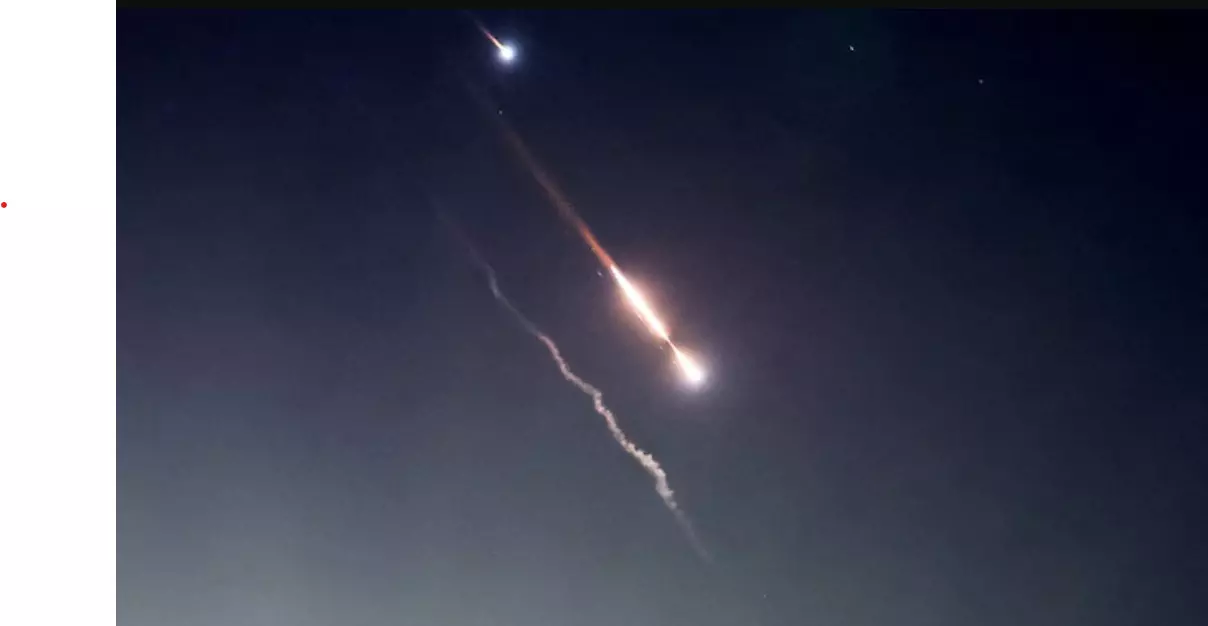Precarious 'retaliation'

The ghastly missile and drone attack by Iran on Israeli territory marks the latest turmoil in Middle Eastern geopolitics, showcasing the fragile nature of stability in the historically tumultuous region. The operation, labelled ‘True Promise’ by the Islamic Revolutionary Guards Corp (IRGC), ostensibly in retaliation for the alleged Israeli attack on the Iranian consulate in Syria, has not just dramatically escalated tensions between the two nations, but can also broaden the fault lines plaguing the wider international community.
Iran’s decision to target Israel directly, leading to the injury of civilians and damage to military infrastructure, is a threatening shift from its usual strategy of operating through proxies. The sheer scale of the attack, involving over 300 drones and missiles—though largely claimed to have been intercepted—presents undoubtedly a possibility for more direct confrontation. Iran's actions, which have drawn condemnation from several nations and reputed international agencies including the United Nations, look like a narrow demonstration of capability and a signal of deterrence, suggesting that Tehran seeks to assert its regional influence and deter Israeli actions. The attack was uncalled for, as Israel has not yet confirmed its involvement in the strike on Iran’s consulate in Syria—a trigger on which Iran’s latest onslaught is premised.
The global response, as expected, has been swift and varied. The United States, alongside Western allies like the United Kingdom, has condemned Iran's actions, reinforcing their commitment to Israel's security. This response was manifested not only in diplomatic support but also in military backing, with US forces actively participating in the missile defence efforts. US President Joe Biden's call with Israeli Prime Minister Benjamin Netanyahu and subsequent statements highlight a clear stance: the US will not shy away from defending its strategic interests and allies in the region. The active role of the US—an arch rival of Iran—in the conflict will likely worsen the situation.
Conversely, the call for restraint by nations such as Egypt, China, and Saudi Arabia, and particularly the United Nations' urgent sessions, reflect a widespread concern about the potential for this confrontation to spiral into a broader regional conflict. The international community remains wary of the historical volatility in the Middle East, where localised skirmishes have frequently precipitated wider unrest. India has called for " immediate de-escalation, exercise of restraint, stepping back from violence and return to the path of diplomacy.”
The strategic implications of Iran's attack are grave. By opening multiple fronts—from the Mediterranean to the Gulf—Tehran is testing the resolve not only of Israel but of the entire international coalition arrayed against it. This strategy risks a severe backlash, possibly drawing more severe retaliatory measures from Israel and further entrenching the US and its allies in regional military engagements. Moreover, the timing of this attack amidst Israel’s ongoing conflict in Gaza cannot be overlooked. It potentially serves to divert international attention and resources. This approach suggests a calculated risk by Iran to reshape the regional power dynamics.
An urgency has emerged for concerted effort towards de-escalation and diplomacy. The risk of miscalculation leading to an uncontrollable escalation is too great. International bodies like the United Nations must take a more proactive role in mediating these tensions. Furthermore, it is crucial for all parties involved to consider the humanitarian implications of their military strategies. To sum up, Iran's attack is a gambit fraught with risk. The international community must respond with a balanced approach that prioritises diplomatic engagement over military confrontation, aiming to secure a stable and peaceful regional order.




